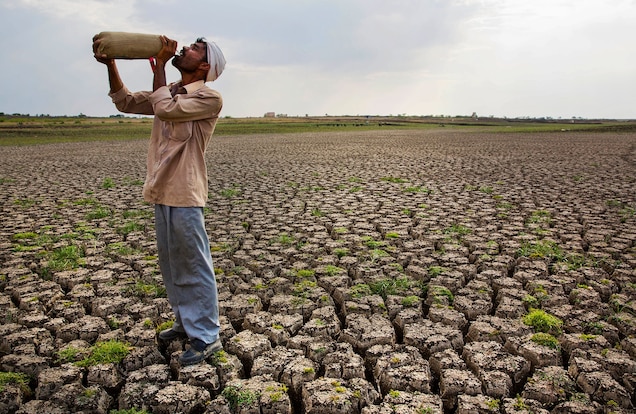Blog
Will There Be Water Wars in the Future?

Of the fears that have risen alongside a warming planet, perhaps none have attracted more attention than the “water wars” hypothesis.
This hypothesis says that increased water shortages around the world will lead to war between states. It goes something like this: as water is central to all human activities, including food production, no state can allow its water resources to be compromised. Therefore, in a world of squeezed water supply, states should be willing to go to war to protect their access to water. At its core, the “water wars” hypothesis expresses our deepest anxieties about a drought-laden future, wherein desperately thirsty societies take up arms against one another.
As evocative as this hypothesis is, the track record also shows that water wars are overblown – thankfully. Exhaustive research by Aaron Wolf, a geographer at Oregon State University, has documented the surprising fact that there have been no interstate wars fought directly over water for thousands of years. In fact, his team’s research indicates that states have cooperated over shared water resources far more often than they have fought over them.
But the absence of a historical record of interstate warfare over water does not mean that we have no reason for concern. On the contrary. There are two very good reasons why we should intensify our efforts to understand how water intersects with conflict and to build the structures necessary to ensure that water leads to peace and prosperity rather than war.
Will water wars take place?
One reason is that the future is not going to look exactly like the past. This is a truism: No future ever looks exactly like any past. But in terms of how the Earth’s various systems operate, we likely are looking at a future that is very different from the past.

For years now, Earth scientists have been debating whether we should rename the geological epoch in which we live, whether we should drop the term Holocene (the period since the last ice age) and substitute for it the term Anthropocene. As the root of the word Anthropocene suggests, the scientists’ basic idea is that human interference in Earth systems has become so pervasive that we have, in effect, a new planet on our hands. Indicators such as climate change, ozone depletion, massive sedimentation, and ocean acidification are proof that human interference in Earth systems already has altered how the planet works.
So too with fresh water: Water cycling will become less predictable in the future. For example, a changing climate will create more droughts and floods more frequently in more places. As water systems become less reliable – say, transboundary river flows no longer follow historic, seasonal patterns – states will come under greater pressure to deal with the consequences. States might begin to take matters into their own hands and lay claim to water resources that others believe belong to them. No one can say whether such a causal chain will result in future water wars.
But the second reason we should remain concerned about the potential for water-based conflict is the overly narrow frame we use to understand the relationship in the first place. Interstate warfare represents only a small part, indeed the far less significant part, of a much larger equation involving conflict and water. We would be smart to focus on that larger equation rather than on the narrower if spectacular “water wars” hypothesis.
